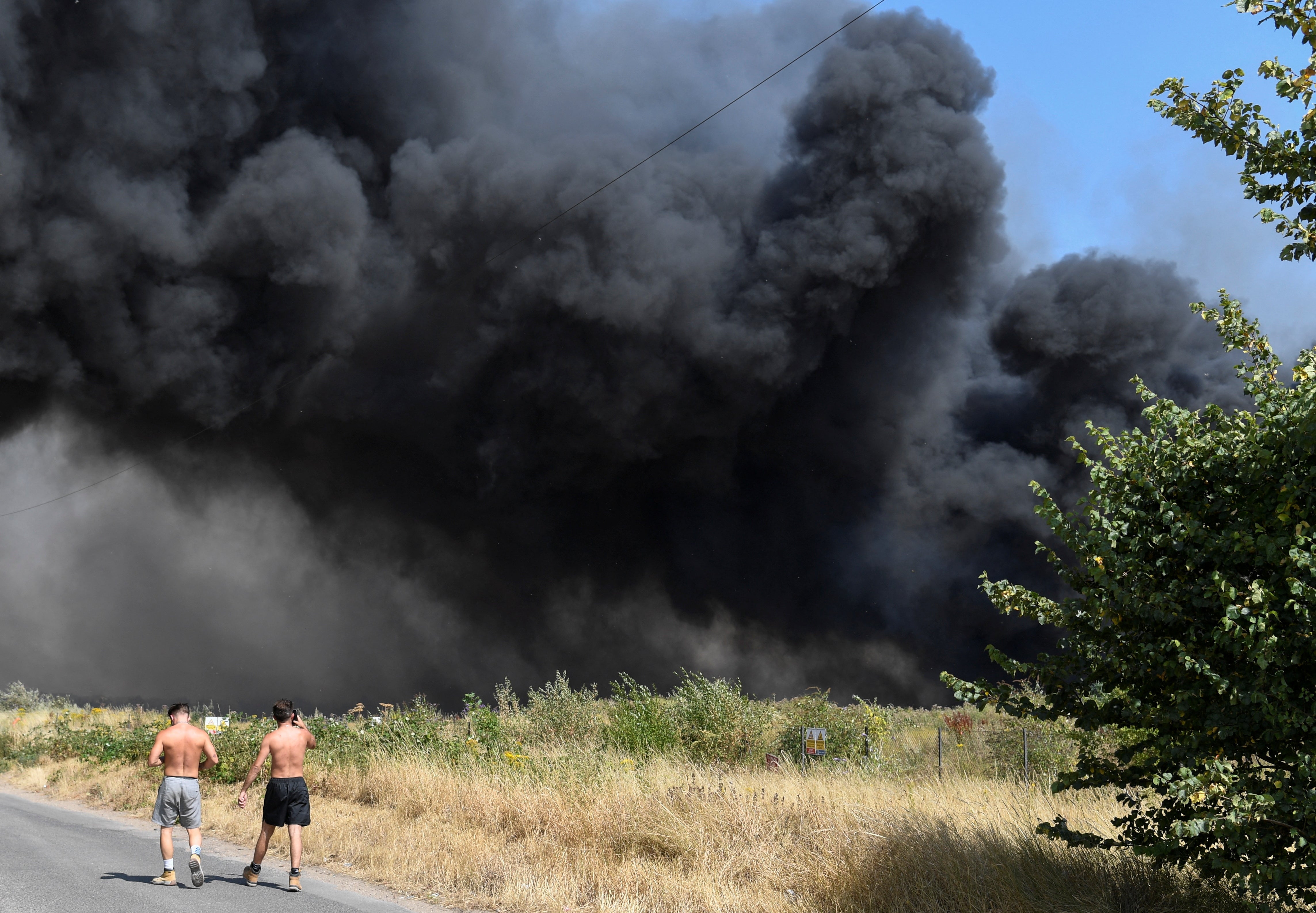Climate crisis made UK’s extreme heat 10 times more likely, scientists say
Extreme temperatures in Western Europe are rising faster than climate models predicted
Your support helps us to tell the story
From reproductive rights to climate change to Big Tech, The Independent is on the ground when the story is developing. Whether it's investigating the financials of Elon Musk's pro-Trump PAC or producing our latest documentary, 'The A Word', which shines a light on the American women fighting for reproductive rights, we know how important it is to parse out the facts from the messaging.
At such a critical moment in US history, we need reporters on the ground. Your donation allows us to keep sending journalists to speak to both sides of the story.
The Independent is trusted by Americans across the entire political spectrum. And unlike many other quality news outlets, we choose not to lock Americans out of our reporting and analysis with paywalls. We believe quality journalism should be available to everyone, paid for by those who can afford it.
Your support makes all the difference.The climate crisis made this month’s record-breaking heatwave in the UK at least 10 times more likely, a rapid analysis by climate scientists has found.
The scientists said this was a conservative estimate as extreme temperatures in Western Europe are rising faster than climate models predicted.
The team of international scientists analysed weather data and computer simulations to compare the climate today – after around 1.2C of warming since the late 1800s – with the climate of the past.
Fredi Otto, a senior lecturer in climate science at the Grantham Institute for Climate Change and the Environment, said the climate emergency will have made the heatwave in the UK more than 10 times more likely, but it was hard to say how much more because of issues with the climate models in Western Europe.
“Basically all of them have a systematic bias in that they underestimate the trends in extreme temperatures in summers in Western Europe because of climate change,” she said.
The scientists found, for example, that the historical weather records indicate that the heat would have been 4C cooler in a world that had not been heated by human-emitted greenhouse gases. Climate models, by contrast, estimate that greenhouse gas emissions increased temperatures in this heatwave by 2C.

Historical weather records also suggest that it would have been almost impossible to see such a heatwave without human-caused climate change, but in the climate models it was hard to say, said Dr Otto.
Temperature records were broken across the UK last week, as the extreme heat fuelled dozens of serious fires and brought chaos to transport and schools across England and Wales.
Thermometers in Coningsby in Lincolnshire hit 40.3C setting a new all-time temperature record, while 33 other locations broke the country’s previous high of 38.7C recorded in Cambridge in 2019.
The new record was 1.6C warmer than the previous one, and 3.6C hotter than the record that stood from 1911 until 1990. The 10 warmest years for the UK since 1884 have all been recorded this century.
The study published on Thursday looks at average temperatures on 18 July and 19 July, as well as the one day maximum temperature on 19 July but found similar results so reported overarching findings for both events. It focused on areas where the Met Office’s red alert warning was in place, around central and south England and east Wales.
The scientists found that heatwaves as extreme as the one recorded in the UK last week are still rare, in a world that has warmed by 1.2C, with a 1 per cent chance of happening each year.
“It’s also important to stress that while it’s still rare in a 1.2C world, we don’t live in a stationary 1.2C world, we are living in a world where temperatures are rising very, very, very fast,” said Dr Otto. “And so in a 1.3C or 1.4C world, this type of event will already be much less rare.”
The study also found that the impact of the heatwave was “unequally distributed” across communities, with inequalities experienced even within London with certain, often poorer, neighbourhoods lacking green space, shade and water.

Heatwaves during the summer pose a substantial risk to human health, with one analysis estimating that almost 1,000 excess deaths are expected to be recorded due to high temperatures during last week’s heatwave. It will take weeks for the full impact – including the true figure of excess deaths – to be established.
The study was conducted by 21 researchers as part of the World Weather Attribution group that attempts to establish to what extent extreme weather events are influenced by climate change in the immediate aftermath of an event.
Climate scientists have repeatedly said that global heating caused by greenhouse gas emissions mainly from burning fossil fuels is making heatwaves longer, hotter and more frequent throughout the world.
The report’s authors said in the future the UK could expect to see a lot more heatwaves, more fires and more impactful droughts.

Join our commenting forum
Join thought-provoking conversations, follow other Independent readers and see their replies
Comments